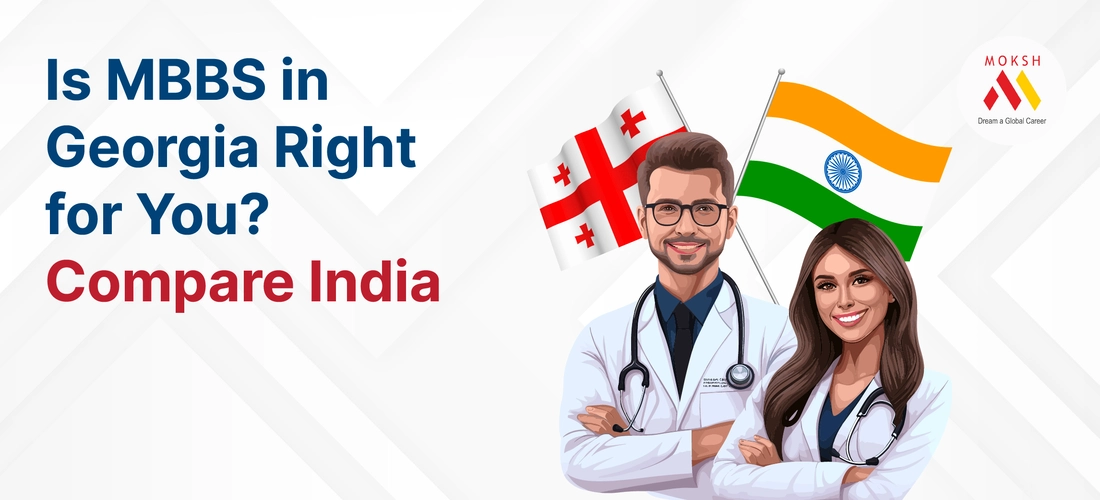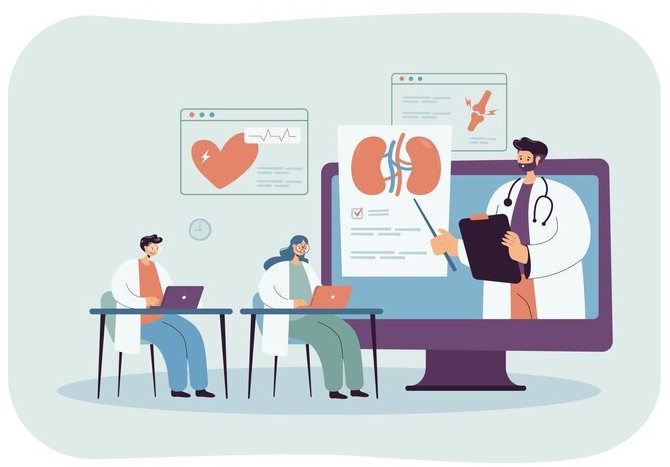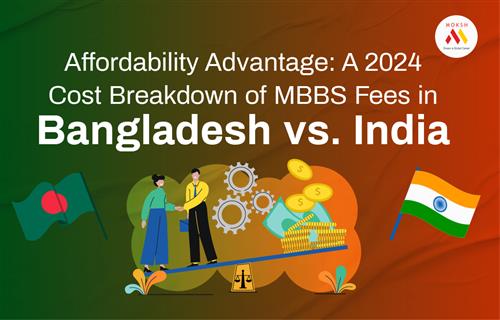
Advantages of Pursuing MBBS Abroad (for Indian Students):
- No Donation or Capitation Fees: Unlike some Indian private medical colleges, universities abroad generally don't demand hefty donation fees for MBBS seats, making medical education more financially accessible.
- Economical Tuition Fees: MBBS programs abroad often have lower tuition fees than Indian private medical colleges. Many universities also offer scholarships and instalment payment options.
- Alternative or No Entrance Exams: While some foreign universities may have their own screening processes, unlike in India (NEET-UG), there is typically no standardized national entrance exam required for MBBS admission.
- Availability of MCI Coaching: Certain universities abroad may offer preparatory courses or resources to help students clear the FMGE required for practising medicine in India. However, students should verify this directly with the university before enrolling.

A Brief Overview of the MBBS Program
Earning an MBBS degree is highly respected worldwide. It's not just about treating sickness; it's about saving lives. Completing this medical college program certifies you as a doctor, holding the prestigious title of Bachelor of Medicine and Bachelor of Surgery. The program usually takes about 6 years in any country. In the first five years, you'll study Anatomy, Pharmacology, Pathology, Surgery, Pediatrics, and Medicine. The last year, the 6th year, includes a one-year internship at hospitals, health centres, NGOs, etc. In India, being a doctor is highly respected and offers many financial and social benefits.
Becoming a doctor takes strong determination. Banks provide education loans to help with studies in India and abroad. Anyone with a passion for medicine can achieve the dream of becoming a famous doctor. You can work in India or overseas depending on specific terms and conditions.
MBBS Curriculum Specializations
The MBBS curriculum allows students to specialize in one of the following:
- Nephrology
- Cardiology
- Gynaecology
- Anaesthesiology
- Organ Transplant
- Surgery and more
MBBS in India: Cost and Entrance Exam
Fees:
-
Government Colleges: The annual fees for MBBS in government colleges in India typically range from ?10,000 to ?50,000.
-
Private Colleges: Private medical colleges in India have significantly higher fees, ranging from ?400,000 to ?2,100,000 per year. The total cost for an MBBS degree from a private university in India can reach around ?70-80 lakhs for the entire 5.5-year program (including internship).
Entrance Exam:
National Eligibility cum Entrance Test (NEET): Since 2017, NEET has become the mandatory entrance exam for filling 85% of MBBS and BDS seats in all medical colleges (government, private, and deemed universities) across India.
Additional Exams: Some prestigious medical institutes, like AIIMS and JIPMER, conduct their own entrance exams to fill the remaining 15% of seats.
High Competition for MBBS Seats in India:
Securing an MBBS seat in India remains highly competitive. According to sources like the National Medical Commission (NMC), as of 2024, there are over 1 lakh (100,000) MBBS seats across the country. However, the number of aspiring students attempting the entrance exam significantly exceeds the available seats.
Single Entrance Exam:
NEET-UG serves as the only gateway to MBBS admissions in both government and private medical colleges across India, streamlining the process and eliminating the necessity for tackling numerous national-level exams.
Government vs. Private Medical Colleges:
There are currently around 500 medical colleges in India, with a mix of government and private institutions. The National Medical Commission (NMC) maintains a directory of these colleges (https://www.nmc.org.in/). The exact split between government and private colleges can fluctuate slightly, but it's generally around 200 government colleges and around 300 private colleges.
Medical Institutes in India:
India offers the MBBS degree (Bachelor of Medicine and Bachelor of Surgery) through government and private universities, boasting over 500 medical colleges. Notable institutions include:
- All India Institute of Medical Sciences (AIIMS) in Delhi
- National Institute of Mental Health and Neurosciences (NIMHANS) in Bangalore
- Postgraduate Institute of Medical Education and Research (PGIMER) in Chandigarh
MBBS in Georgia
Georgia, a European nation nestled in the Caucasus, has seen a surge in popularity among MBBS seekers.
Key Advantages of MBBS in Georgia:
- Affordable fee for quality education
- Georgian universities offer MBBS degrees with a structure and duration similar to those in India.
- MBBS degrees in Georgia are offered in English
- MCI, WHO, and UNESCO recognize many top Georgian universities.
- Georgia is a safe country with readily available accommodation
- Admission formalities and eligibility criteria are straightforward.
- Georgia hosts numerous international medical conferences, offering valuable international experience.
- After completing MBBS in Georgia, students can pursue higher studies in the US or Germany.
Medical Universities in Georgia:
Every student dreams of getting into the best medical schools in Georgia. There are 18 private universities and 5 public universities in the country that offer medical degrees. Most of these top medical universities are located in Tbilisi, primarily because of the high number of patients they receive. Check out the list of medical colleges in Georgia.
| University | Program | Tuition Fees (approx. per Year) | Cost in RUB |
|---|---|---|---|
| Kazan State Medical Univ. | MBBS | Rs. 4,59,000 | RUB 4,59,000 |
| Kazan Federal University | MBBS | Rs. 3,85,000 | RUB 478,000 |
Comparison Between MBBS in Georgia and India:
| Factor | MBBS in Georgia | MBBS in India |
|---|---|---|
| Duration | 6 years | 5.5 - 6 years |
| Medium | English medium | English medium |
| Entrance Test | No national entrance exam (FMGE required for practising in India) | NEET-UG (National Eligibility cum Entrance Test) |
| Fee | Rs. 3-4 lakh per year (approx. 15-25 lakh for entire degree) | Government: Rs. 12,000-300,000 per year, Private: 12-15 lakh per year |
| Hostel | Easily available | Allotted after screening and interview (availability can vary) |
| Recognition | Ministry of Health (Georgia), MCI (verification required), WHO, UNESCO | Ministry of Health (India), MCI, WHO |
| Degree | MD equivalent degree awarded to medical graduates | MBBS degree awarded upon successful completion |
| Living Costs | Moderate (estimated $500-$800 USD per month) | Varied depending on location and lifestyle |
Ultimately, your choice between studying MBBS in India or Georgia should be guided by your preferences, career objectives, and aspirations. Evaluate each country's distinct advantages and challenges to make an informed decision that will support your future in medicine.
Conclusion
The importance of an MBBS degree from abroad is limitless. Students comfortable with the terms, advantages, and facilities abroad are free to choose an MBBS in Georgia or from other nations. MBBS from India and MBBS from Georgia both have their own importance. The only thing to consider is making the right decision at the right time.
Ready to explore your options for MBBS programs abroad? Visit MOKSH - https://www.moksh16.com
for detailed information, resources, and expert guidance to support your medical education journey!







.png)

.webp)

